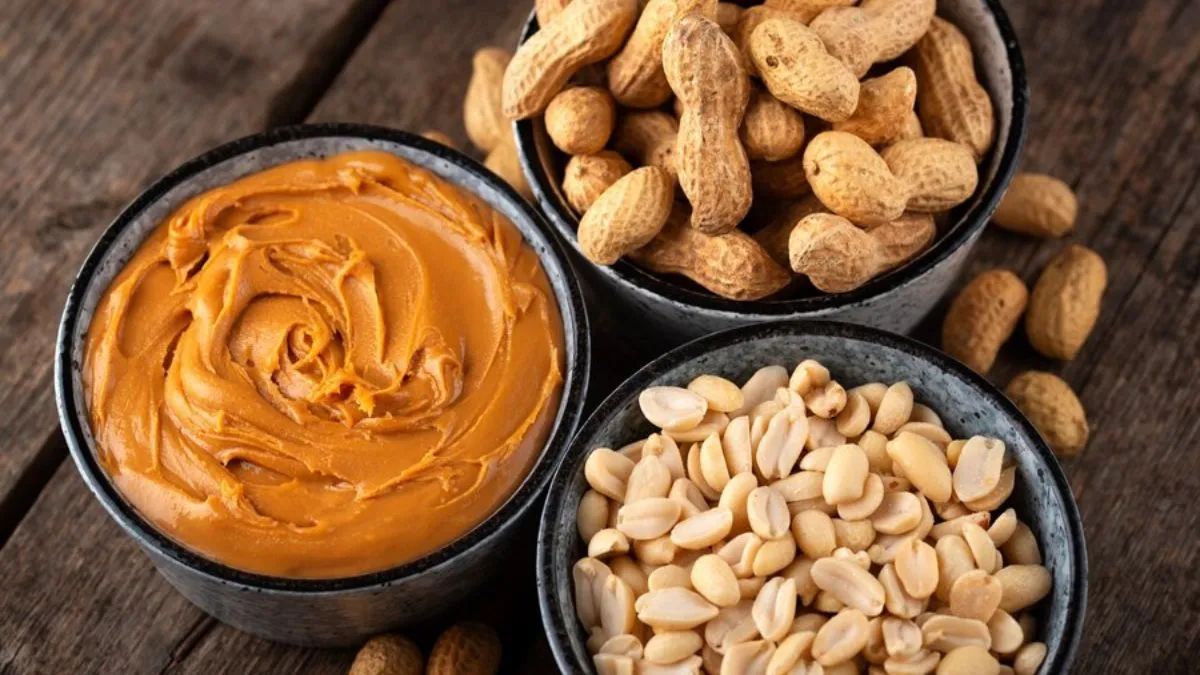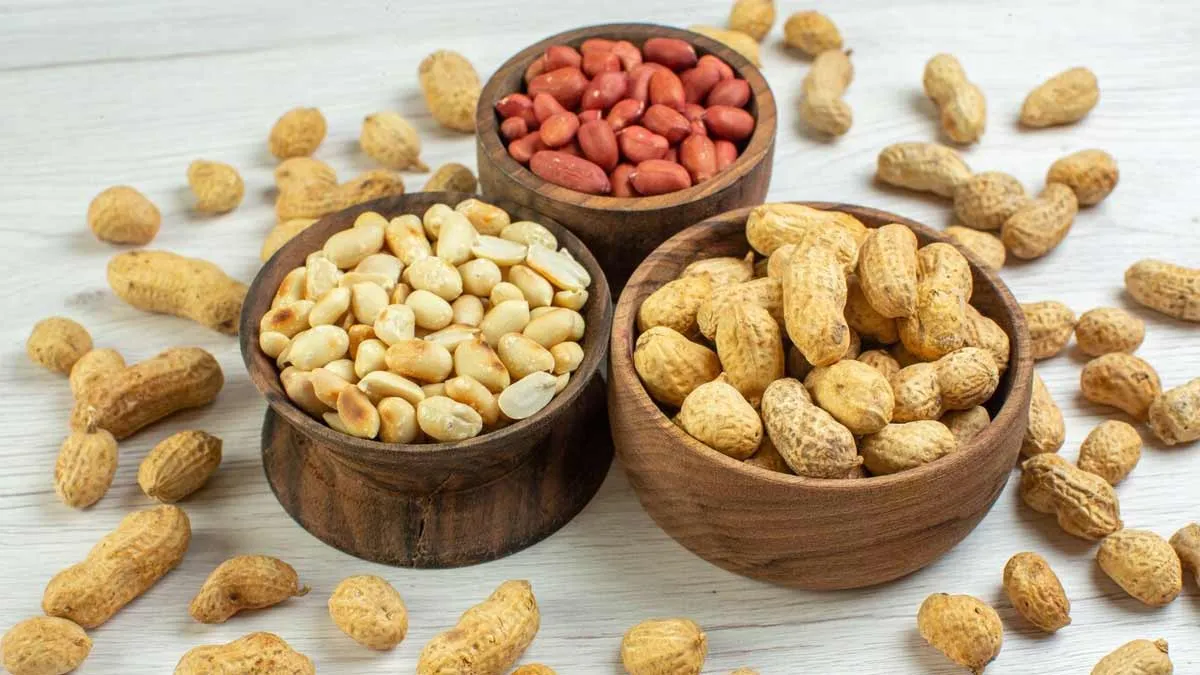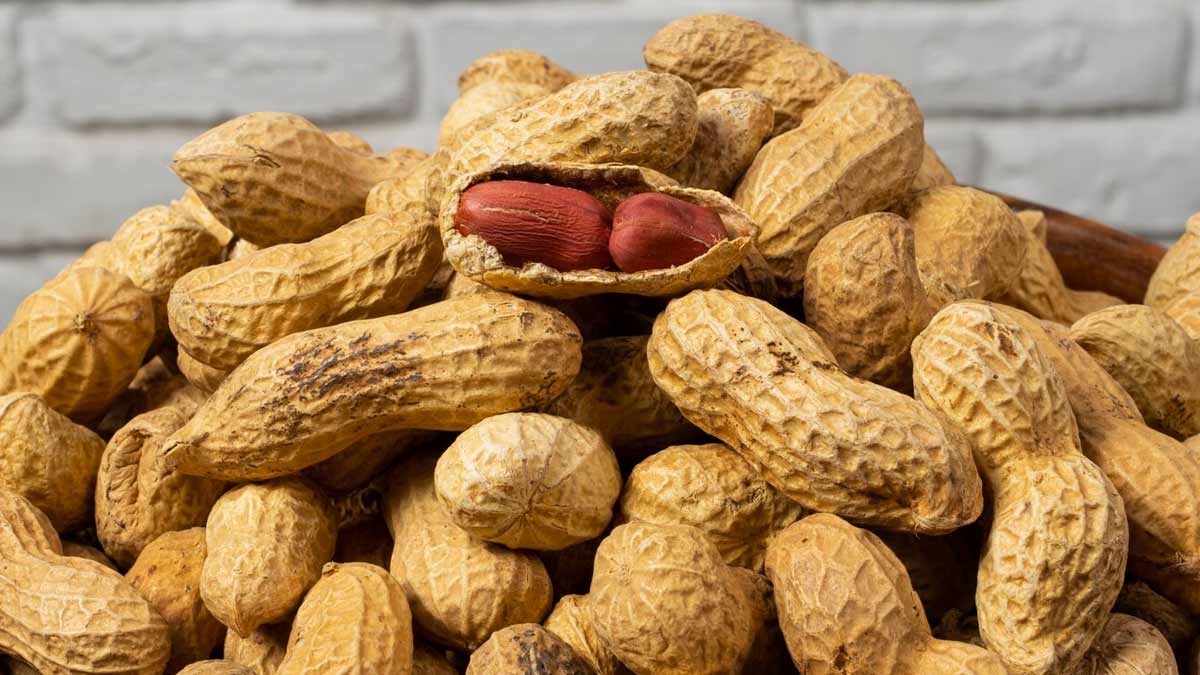
With the air setting in for the cold winter months, we often tend to reach out for snacks that are not only comforting but also warm in nature, peanuts often become the go-to evening munch. Especially in the Indian households, peanuts remain one of the major winter-time staples, but are they as healthy as they sound when they replace evening snacks on a daily basis during the cold months?
Table of Content:-
To have our questions answered, we reached out to Divya Gandhi, Dietitian and Nutritionist, Divya Gandhi's Diet and Nutrition Clinic, Delhi, and according to her, a handful of peanuts can be added to your diet during winters if done correctly. Here is everything she shared with us and you need to know.
What Makes Peanuts a Great Winter Snack
Peanuts are one of the most nutrient-rich foods. They are an excellent source of protein, good fats, magnesium, vitamin E, and antioxidants like resveratrol. "Peanuts generate warmth in the body, which is why they're traditionally eaten in winter," explained Divya. The monounsaturated fats and protein help maintain energy levels, while the niacin and folate contribute to healthy metabolism.
Peanuts also contain arginine, one of those amino acids that facilitate blood flow and keep your heart healthy. The fibre in peanuts helps digestion and holds hunger pangs at bay, making them an excellent choice for an evening snack instead of fried or sugary foods.
Also Read: Are You Allergic To Peanuts? Here Are 5 Ways To Keep Your Fibre Intake In Check

Helps Boost Immunity and Energy
During winters, body metabolism goes slow and the immunity is generally low. Regular consumption of peanuts would help build immunity. "Zinc and vitamin E in peanuts are two very important components that help maintain immune defense and skin health," said Divya. It gives energy that would last longer because its protein and fat combination is digested slowly.
“Peanuts help a lot, especially when taken in the evening, as they stabilise the blood sugar levels and prevent one from succumbing to late-night snacking. Their high satiety value makes them perfect for those trying to manage their weight or balance calories during the festive season,” Divya added.
Supports Skin and Hair Health in Dry Conditions.
Cold weather can make skin dry and flaky. Healthy fats and vitamin E in peanuts help nourish skin from within. "Peanuts act like a natural moisturiser. The biotin in peanuts also supports stronger hair and prevents breakage." Adding a small handful (about 25–30 grams) daily can help improve skin elasticity and keep hair healthier in the dry months,” Divya highlighted.
Also Read: Are There Any Side Effects of Eating Peanuts? Read On To Know

Downsides of Consuming Peanuts Daily In Winter
While peanuts have a nutrient-dense profile, they should be consumed in moderation. Overconsumption can clearly lead to unwanted effects. "They're calorie-dense, about 560 calories per 100 grams, so eating large quantities daily can cause weight gain," Divya cautioned. Additionally, excess salt in roasted or spiced peanuts may also raise blood pressure if consumed on a regular basis.
Another issue includes allergies. To those sensitive to peanuts, small amounts can cause reactions from a light itch to life-threatening anaphylaxis. Divya also advised against consuming old or poorly stored peanuts because they may harbour aflatoxins, which are toxic fungal substances that are known to cause liver problems.
How to Eat Peanuts the Healthy Way
Divya suggested using simple, unsalted, or light-roasted peanuts. It is best to avoid deep-fried or masala-covered ones because they add extra sodium and oil. For better nutrient absorption, soak raw peanuts for a few hours before roasting. “Combining peanuts with jaggery or in a chikki form is also a smart way to get iron and protein together,” she said.
Pairing peanuts with fruits or salads is another healthy option, as this adds a crunchy texture and enhances satiety. For those with cholesterol concerns, boiled or dry-roasted peanuts are options to minimise fat intake.
Bottomline
Eating peanuts every evening during winters could be healthful if done in moderation. They keep the body warm, energise it, and provide necessary nutrients that boost immunity, skin, and heart health. However, experts not that a handful a day is enough.
Also watch this video
FAQ
1. How many peanuts should one consume daily in winter?
About 25 to 30 grams, or a small handful, is enough to achieve health benefits without excess calories.2. Does eating peanuts each evening contribute to gaining weight?
Yes, if consumed in large amounts or with added salt and oil. Consume only modest portions of plain, roasted, or boiled peanuts.3. Are peanuts safe for people with high cholesterol?
Yes, in moderation. Peanuts have healthy fats that may improve good cholesterol, but avoid fried or salted versions for the sake of heart health.
How we keep this article up to date:
We work with experts and keep a close eye on the latest in health and wellness. Whenever there is a new research or helpful information, we update our articles with accurate and useful advice.
Current Version
Nov 23, 2025 18:35 IST
Published By : Tanya Srivastava